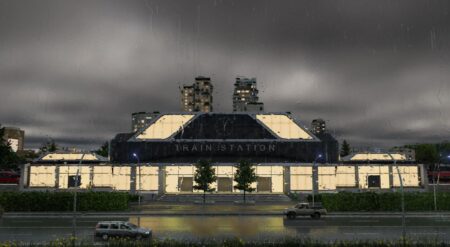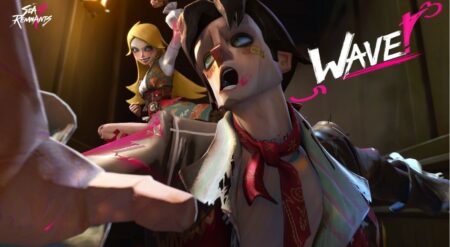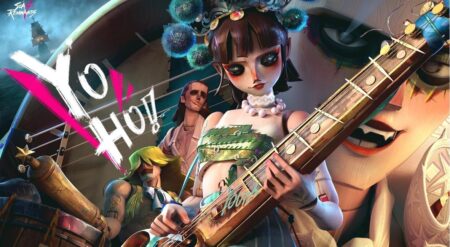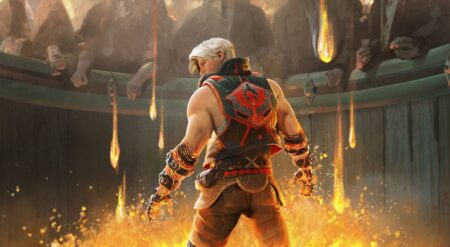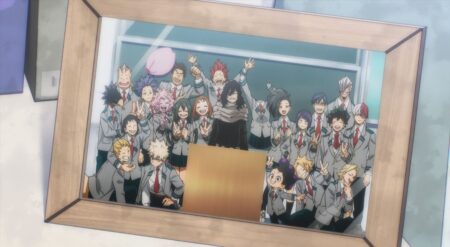
The Star Trek franchise is known for it’s incredible sound mixing that immerses fans further into the universe of Starfleet. No less is true for Star Trek: Picard, which recently ended with its third season. On the first day of San Diego Comic-Con 2023 (July 20th-July 23), as part of Rhapsody PR‘s event “Supersonic: Behind the Music”, the sound mixer for Picard Season 3, Phil McGowan, joined a panel of TV composers from a variety of shows, each conveying their experiences and what drew each of them to their craft.
We were fortunate enough to speak with Phil McGowan on how he got into Star Trek in the first place, how he approaches sound mixing for Picard, what it was like to watch the show with his sound mixing in it, and his thoughts on AI and the ongoing Writers and Actors Strikes.
This interview has been edited for length and clarity.
BUT WHY THO: You grew up with Star Trek: The Next Generation, as you mentioned on your panel. In general, what was it like stepping into the Star Trek legacy?
Phil McGowan: Yeah, I mean, I think I said on the panel that I was much more of a Star Wars kid growing up, but I mean, I had like babysitters in the 90s. They were watching Star Trek in the background. I remember seeing little bits of Voyager and Deep Space Nine and all those sorts of things. So I was absorbing it in some way. And when I went back to do some research before I started on Picard Season 3, and was listening to Dennis McCarthy’s scores for The Next Generation. And definitely, the sound of those things was like, “Oh, yeah, I remember this music, I remember this sort of vibe.” So that was super fun for me. It’s the first Star Trek project that I’ve worked on. And it’s kind of I feel like it’s almost a cliche in Hollywood. Everyone eventually works on a Star Trek project at some point, right? Very proud of this one, though.
BUT WHY THO: Yeah, absolutely. And so many really great things were done this season. I think it’s many people’s favorite season of the show, I know it was for me. Was there anything that you tried in your mixing to harken back to in Star Trek, or potentially other science fiction history like Star Wars?
Phil McGowan: I mean, we’re trying to sort of, without just copy-pasting things, to sort of bring the sound of the show back to The Next Generation and the films. So you know what Jerry Goldsmith did, James Warner and Dennis McCarthy, and all the composers that did, you know, the original series all the way through the films, were trying to sort of pull it back to that old school sound, but also there’s a lot of new things as well, like the Picard composers Stephen Barton and Frederik Wiedmann did. They have a lot of synthesizers and sort of modern elements and big epic percussion that maybe wouldn’t have been heard in that same light back in the day. So it’s kind of a hybrid between sort of the classic big, grand, orchestral sound, but then with the modern elements as well.
BUT WHY THO: So the role of Artificial Intelligence (AI) was discussed on your panel. What’s your perspective on the place of AI currently, and what must be done in order to, as we see now with the Writers and Actors Strikes, protect artists. How will sound mixers and composers be protected from the potentially really brutalizing effects of this new technology?
Phil McGowan: I mean, we just need to have protections that it doesn’t replace too many people. I think, inevitably, that’s probably what will happen at a certain scale. And that’s kind of what happened to you know, the biggest analogy that I can come to is when we had sample libraries and synthesizers kind of coming into the fray in the music of 80s and 90s. And a lot of musicians freaked out, fearing they were all gonna be replaced. Their jobs don’t exist anymore. And it’s true. There’s less recording orchestras than they were back then. But we still have incredible musicians in LA and London and Eastern Europe that are still recording film music, so it didn’t go away completely. So AI will have some changes like that. There’ll be some shifts with people’s careers, but hopefully, we just embrace it as a tool that we can use to do something new. It’s something creative, though. We all know, you know, a lot of the powers that be would rather just replace people and make them more money in the end. But hopefully, we can sort of just have some protections in place that we just maintain it as a tool to do things that we couldn’t do before.
The WGA and SAG-AFTRA strike is still going to get fair wages and better employment protections. Want to learn more? Check out this interview.
BUT WHY THO: Yeah, absolutely. As a Star Trek fan yourself, what was it like to watch the coming together of The Next Generation’s main crew, and being pivotal in the creation of that on-screen as you heard your sound mixing?
Phil McGowan: I mean, it’s super exciting. Definitely a lot of goosebumps at the recording sessions because that was the first time I’d ever heard the music. Everything was kind of new for me there. You know, we always have picture running, and I usually work on a sequence I usually start with the biggest most epic piece of music and then sort of, you know, kind of mix things in that order. So I didn’t really fully watch the entire series. I waited till now, obviously. I’ve seen all the big scenes that had music on it because I was watching the picture was mixing up but I hadn’t watched it all the way down in sequence. I was waiting for the final sound mix to be done in the final VFX. So that was super fun, both in session and also just to watch it all as it was coming out on the streaming app ecosystem and to hear my work amongst everyone else. It was really exciting.
BUT WHY THO: Yeah, for sure. I must have been amazing. Is there any other particular franchise whether sci fi or not that you’d like to do more work in?
Phil McGowan: I mean, it’s funny. I used to get asked that question. I always would say science fiction and now I have this with Star Trek. I mean, hopefully, Star Trek Legacy happens. It’s awesome that there’s so much fan support for Terry Matalas to do another show. And I think we hopefully will be included in that as well. It will probably be several years down the line if it does happen, but that’d be super fun. So yeah, sci-fi has been great because, honestly, I don’t have worked on a ton of it until now.
BUT WHY THO: We sort of touched upon this, but again, we have the Strikes ongoing. None of the shows that you work on would exist without the writers and actors who are now striking for their basic essentials and protections against AI. So, is there anything you can say to comment on the current situation and where you hope maybe going?
Phil McGowan: I mean, I think we just need to bring the industry back to a balance between the financial people and the creative people. They always talk against each other. We need both, I mean, past profitable for us to be able to actually make things but at the same time, we have to care about the quality of the content of what’s going out there, and right now, it seems like the industry has completely shifted to caring most about the stock price, not about the content. So I think we can hold the industry back to a balance between the executives and the financial people and the accountants and then the creative side of people: directors, showrunners, and writers. I think that’s kind of and I think the fans are seeing it too, you know, I think they don’t want to see just you know, remake after remake and rebooting certain things or you know, just kind of only staying within existing franchises but you know, having new things being made, so, hopefully the strike pushes them to bring the industry back to where it was completely agreed.
As we barrel towards the future where technology and AI specifically will be more prevalent, McGowan aims to make the best of the changing times. But he believes in the artists like himself and the Star Trek composers who are pivotal to the success of shows like Picard, and that a balance between the use of technology and consideration for the artists will be preserved. It sounds like a future Gene Roddenberry would approve of. Let’s hope we get there.

